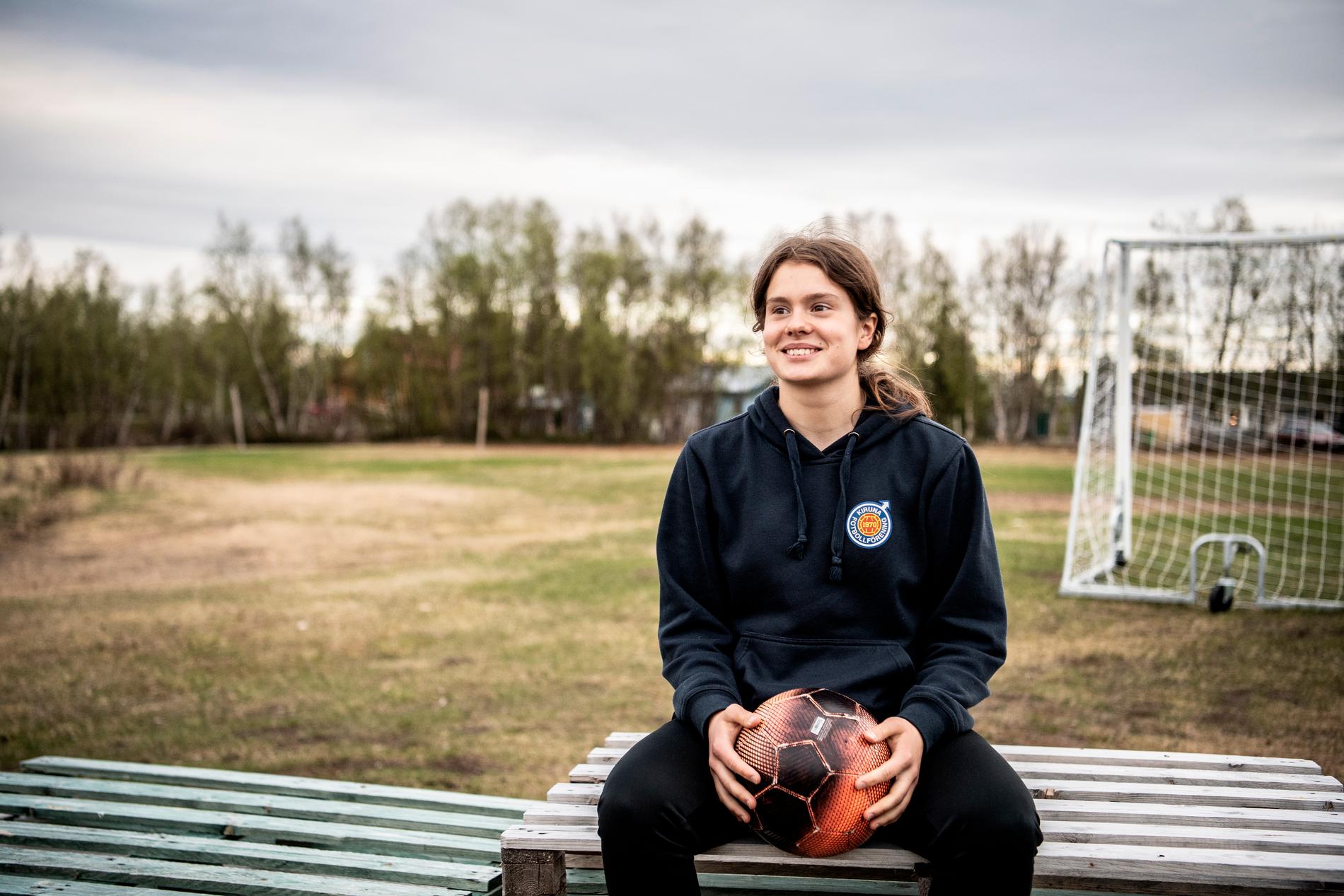League captain: She decided for herself how good it would be

One player at the Swedish Football Association’s development camp described how she trains seven times a week and another how she got into a fight with Damallsvenska a.
Then Eva Alida Eliasson spoke.
– Her upbringing is very extreme, says captain of the national team Martin Muller.
The players who met in Uppsala in March were 46 out of a total of about 150 girls born in 2006 who are considered in the future for the Swedish girls’ teams. But the national under-23 national team captain Martin Muller himself knew very little about the players and their conditions before the regional development camp.
It was only when the players gathered for a group chat that they understood the extraordinary with the brown-haired 15-year-old. Kiruna FF.
– Then we learned that she travels many miles to play soccer. Mueller says it’s her daily life.
They’ve heard about how Eva-Alida Eliasson has navigated over two hours in one easy way to get you to play on a soccer team. But what they didn’t know was that until three years ago she had no teammates other than her kitchen doors.
I don’t know her entire background, but if you’re going to play football today, physical conditions like speed and basic physics are very important. But the fact that she picked up football so late makes it all the more impressive that she has kept up the level she enjoys. It proves once again that there is not only one way to become a good player, Muller says.
He tells how other players in the camp came from clubs such as AIK, Brommapojkarna, Hammarby and some Uppsala associations. How some ride a subway station or bike or go to their workouts.
There were also examples of girls who had not played any sport other than football since childhood. Among them are also players who today train regularly with clubs in damallsvenskan.
– We also had some players who were in the national team rallies and sniffed them and others who were at the national team rallies. If we look at these three camps we have, there will be players who will one day belong to the national team in the future. I am totally convinced of that.
Muller describes the memory of Eva Alida Eliasson as a caring player who yearned for knowledge and a more football-oriented everyday environment.
– In terms of football, she is a hardworking player with a good personality. You can also understand from the circumstances in which she lives in her daily life that she is not accustomed to pampering or serving.
How do you see her future?
– I can refer to her as a 16-year-old girl from Brommapojkarnas or Hammarby Academy. It is she who decides how good it will be, because all conditions exist. Then it comes to working hard and ending up in the right environment at the right time. Now the national physical education will start in Umeå and after that it will end in a more visible football environment.
But how can a girl who played soccer on her kitchen doors growing up as a 15-year-old have the same conditions to become a Sweden player as anyone who grew up in an academy with professional coaches?
– Above all, she has a special quality in this serious work. She has a good personality and may have faced some challenges along the way and thus had to put in a lot of hard work to get to this level so quickly. It is not something to be underestimated. It is not always better to be your best when you are ten or eleven years old. That might be another path that suits her better.
Now Mueller hopes that Eva-Alida’s journey will inspire more people.
– I live in Edsbyn in Hälsingland and here there are girls who run and dream of becoming soccer players. So I hope we can build a system that makes it possible for everyone to keep this dream alive, wherever they are. But Eva Alida’s place of residence is extreme. This is why the trip is so fun.
